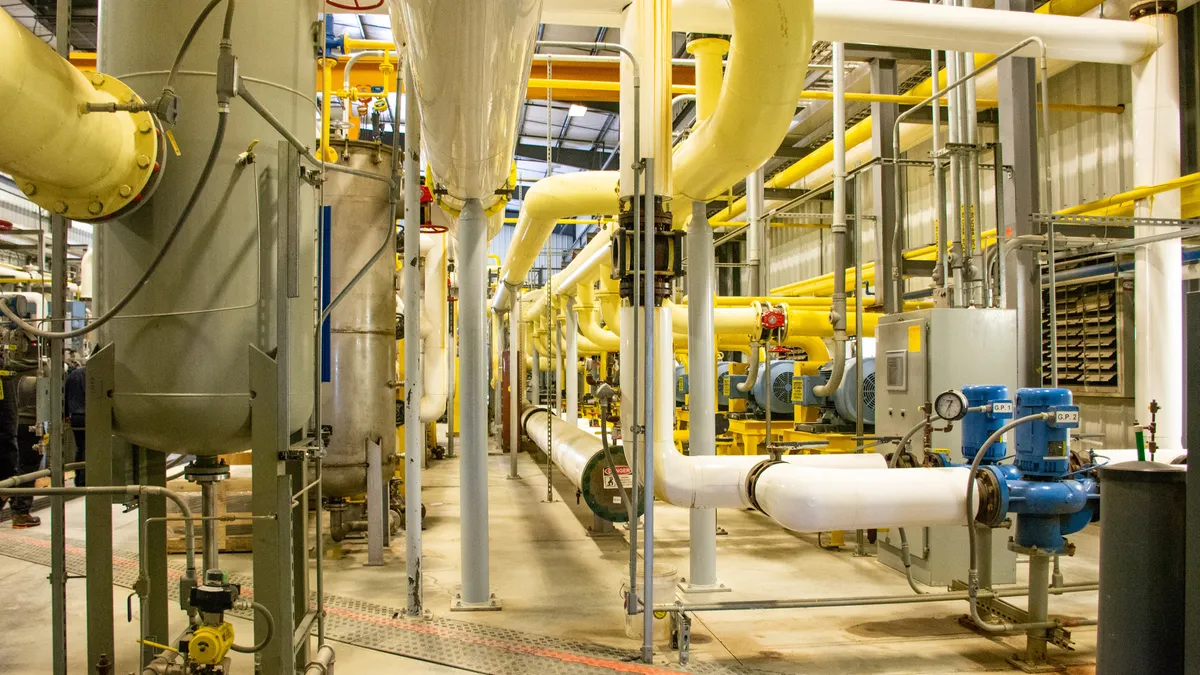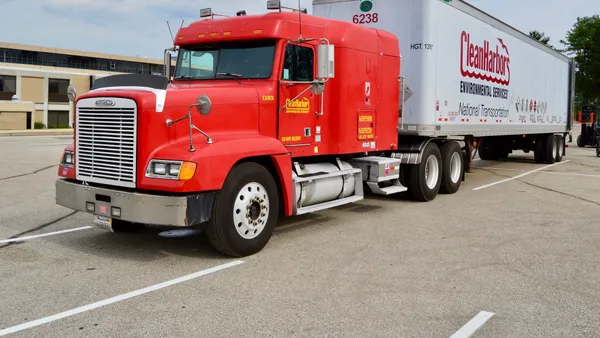Dive Brief:
- A coalition of biogas industry groups that include the RNG Coalition and American Biogas Council urged the U.S. EPA to finalize a program that is slated to include the fuel in a lucrative new credit market in a letter sent to the agency last week. The EPA must set biofuel quotas under the Renewable Fuel Standard, which governs the RIN market, by June 14, but is reportedly considering punting its eRIN decision as a result of pushback.
- The proposed eRINs program would generate credits from renewable electricity systems like biogas to power electric vehicles. But Republicans on the House Energy & Commerce Committee sent a letter to the EPA saying the program "inserts uncertainty into the transportation fuels market."
- Meanwhile, Democrats have sent their own letter urging the inclusion of waste-to-energy facilities if the eRIN program is adopted. The letter was signed by 10 lawmakers, all from states like Florida, California and Connecticut that currently have waste-to-energy facilities.
Dive Insight:
If passed, the eRIN proposal has the power to give landfills, anaerobic digesters and other biogas producers a larger piece of the credit market as it hastens the transition away from petroleum-based fuels.
In their letter, industry groups said that implementing eRINs in the EPA's newest rulemaking is complementary to other agency activities designed to electrify the U.S. vehicle fleet and consistent with previous actions to create a biogas electricity pathway.
The rule EPA finalizes on June 14 is scheduled to go into effect at the start of 2024.
"This long-awaited opportunity is timelier than ever," the groups wrote.
Republicans expressed skepticism that the EPA had the authority to create a new branch of the Renewable Fuel Standard related to electricity markets rather than traditional fuels, and said they'd prefer such a program be implemented through legislation.
Their letter comes amid Republican opposition to expanded electric vehicle tax credits and other climate-related programs passed and signed into law by President Biden. Democrats, meanwhile, have looked to expand on the Biden administration’s efforts to reduce waste going to landfills.
The letter sent by Democrats in support of adding waste-to-energy facilities to the eRIN market notes that such facilities divert material that would otherwise be landfilled and argue their inclusion would support efforts to reduce greenhouse gas emissions.
“We urge the EPA to align its final rule with the Biden Administration’s commitment to reducing greenhouse gas emissions and not incentivizing landfilling. The EPA should ensure equal treatment for WTE,” the lawmakers wrote.
The EPA could split off its decision on eRINs from its June 14 rulemaking, Reuters reported last week. That deadline was set as part of a settlement agreement with biofuel trade association Growth Energy requiring the EPA to set Renewable Volume Obligations on a regular timeline.
The RVOs apportion a certain amount of RIN credits to biofuels, something industry groups previously said they are not getting enough of in the proposed rule. They say the EPA is undervaluing the rapid growth of the biogas industry.
The eRINs would be a boost to biogas on top of those traditional RINs, and delaying or halting implementation of eRINs could have a negative effect on the growing industry, biogas groups said. Even if groups don’t get the expanded credit volumes they’re pushing for, they’d rather see the rule get finalized then get put on hold, Patrick Serfass, executive director of the American Biogas Council, said in a companion letter to the EPA.
“We do not believe this to be the time to allow the pursuit of a perfect regulatory policy structure to get in the way of a very good and necessary program,” Serfass wrote.











